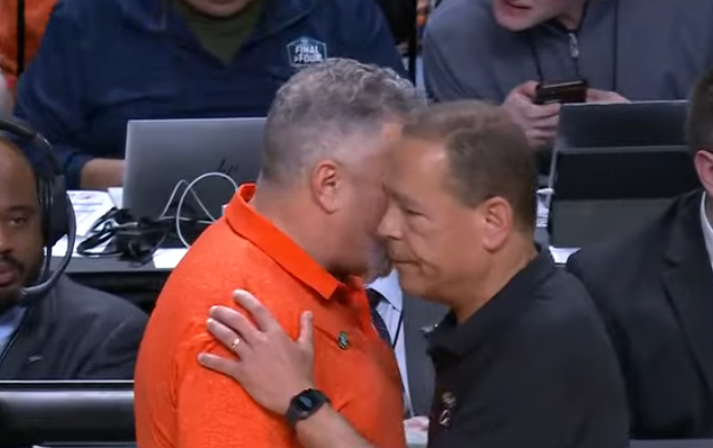
- Details
- By Native News Online Staff
Houston Cougars’ head basketball coach, Kelvin Sampson, is poised to lead his team to the second NCAA’s Final Four for the second straight year. Coach Sampson is a tribal citizen of the Lumbee Tribe of North Carolina.
Before getting to the Final Four, Houston has to beat Villanova tonight. Houston's 72-60 Sweet 16 upset over No.1 seed Arizona on Thursday night got the team to the Elite Eight.
Watch Houston Cougrars v. Villanova Wildcats
WHEN: Saturday, March 26, 2022 at 6:09 p.m. - EDT
TV: TBS
STREAM: Watch
Want more Native News? Get the free daily newsletter today.
“We're not Villanova,” Sampson said at a press conference when answering a question about Houston’s Elite Eight opponent Saturday. “Villanova's up here. We're down here. We're not there. Maybe one day we can be, but we're not there yet, and that's OK. You have to be comfortable in your own skin. There's not a lot of Villanovas. A lot of programs have gone down and gone back up, but not Villanova. They're great every year.”
Coach Sampson was born in Laurinberg, N.C. and raised in Pembroke, N.C. — the heart of the Lumbee Tribe of North Carolina. He’s Lumbee through and through, and out of the NCAA's 353 Division I basketball programs, Sampson is the only Native American head coach.
Sampson has been coaching basketball for over 40 years, coaching eight years in the NBA and then for various NCAA men’s programs, including Michigan State University, Montana Tech University, Washington State University, University of Oklahoma, Indiana University, and the University of Houston.
He is one of only 15 coaches in NCAA history to lead four or more schools to the NCAA tournament and has been named National Coach of the Year three times.
Coach Sampson's son, Kellen Samspon, is Houston's lead assistant coach.
A victory on Saturday night will not only get the Houston into the Final Four for the second consecutive year, but it would be Sampson's 700th career college coaching victory.
More Stories Like This
Native News Weekly (August 25, 2024): D.C. BriefsNavajo Nation Mourns the Passing of Former Vice President Rex Lee Jim
Deb Haaland Earns Endorsement From Communications Workers of America Local 7076
University Soccer Standout Leads by Example
Two Native Americans Named to Democratic Congressional Campaign Committee's“Red to Blue” Program
Help us defend tribal sovereignty.
At Native News Online, our mission is rooted in telling the stories that strengthen sovereignty and uplift Indigenous voices — not just at year’s end, but every single day.
Because of your generosity last year, we were able to keep our reporters on the ground in tribal communities, at national gatherings and in the halls of Congress — covering the issues that matter most to Indian Country: sovereignty, culture, education, health and economic opportunity.
That support sustained us through a tough year in 2025. Now, as we look to the year ahead, we need your help right now to ensure warrior journalism remains strong — reporting that defends tribal sovereignty, amplifies Native truth, and holds power accountable.
 The stakes couldn't be higher. Your support keeps Native voices heard, Native stories told and Native sovereignty defended.
The stakes couldn't be higher. Your support keeps Native voices heard, Native stories told and Native sovereignty defended.
Stand with Warrior Journalism today.
Levi Rickert (Potawatomi), Editor & Publisher

